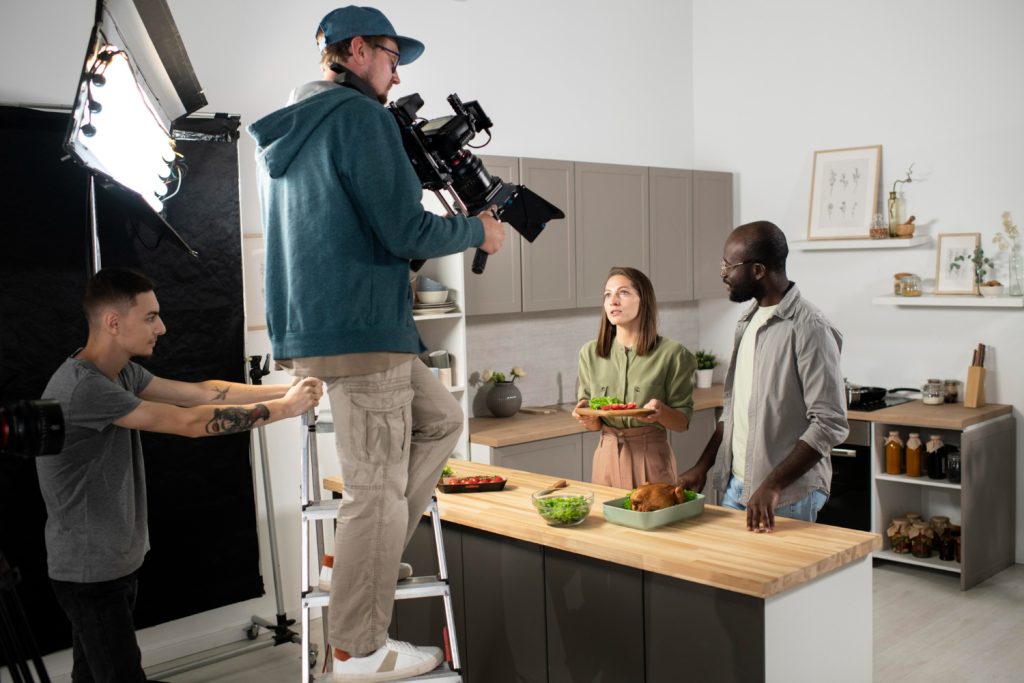Low season shouldn’t make a hole in your budget, especially when you have wonderfully designed houses. Why not let your property shine in movies and photo shoots? If you rent your property for filming, you will earn much more than with vacation rentals. Seize the opportunity to showcase your portfolio, meet interesting people, and spice up your life.
Not quite sure if you should rent your property for filming? Keep reading to make your first steps.
How do I use my house for filming?
Once you decide to rent your property, the question “How do I rent my house for filming?” will probably pop up.
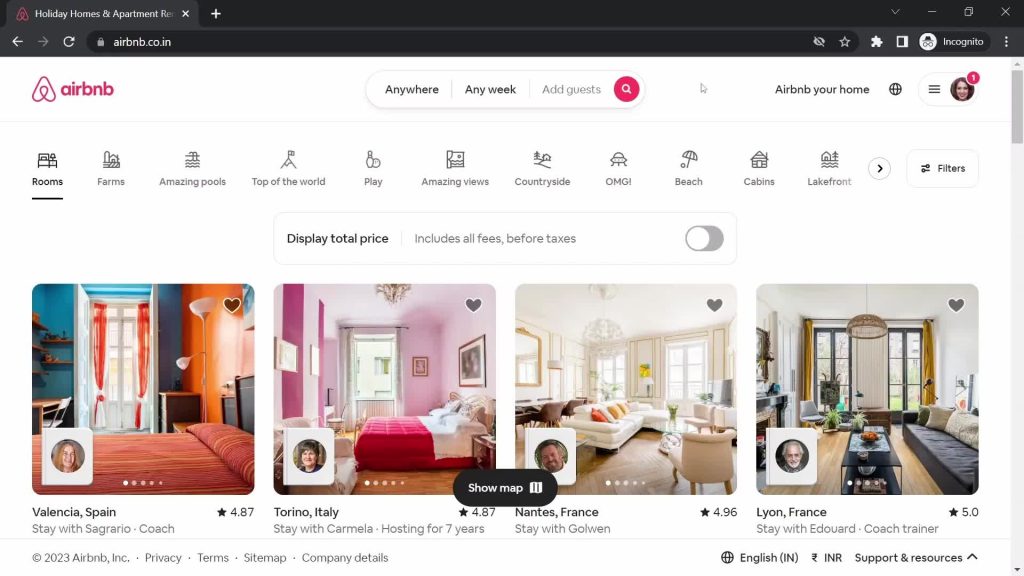
Analyze the rental niche in your local market and the target audience
- Analyze the prices
- Check interior designs of competitors to understand what’s in demand
- Read property descriptions
- Make a list of the equipment, furniture, and other nice-to-have details
For example, in Los Angeles, where renting property for filming is highly popular, the rates vary from $12/hr for a basic photoshoot studio to $740/hr and up for a large, stunningly designed house with a pool.
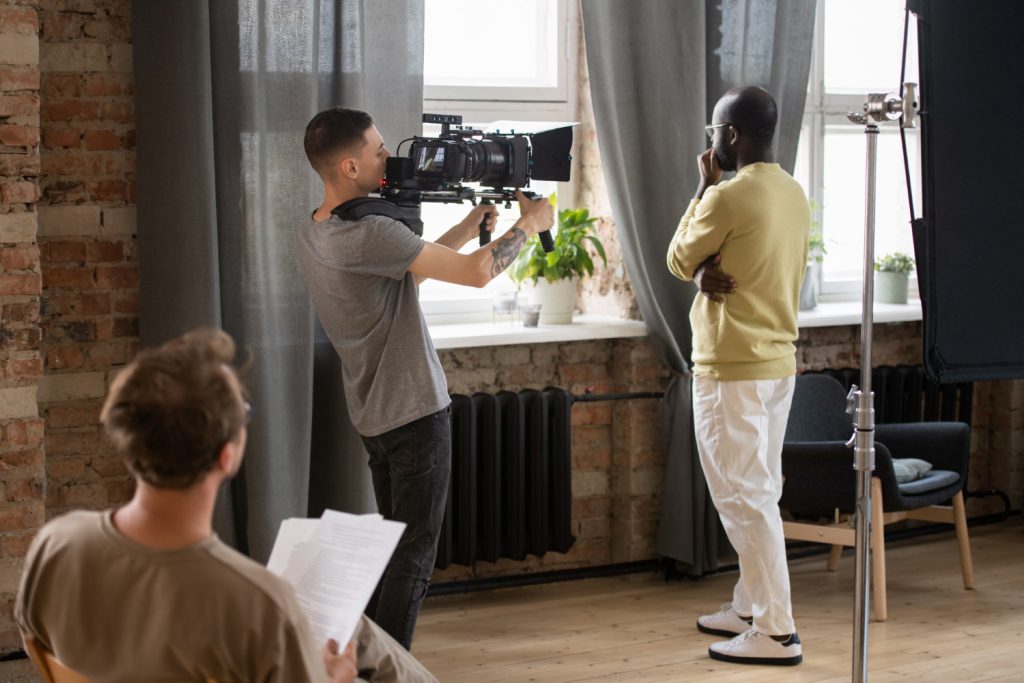
The initial analysis should help you understand how to refine your interior and exterior; how to make the house more attractive and, consequently, ask for higher hourly rates.
Tip: Invite a designer to get some basic recommendations to glam up your home for photo shoots. It might be as simple as adding more light or making more space.
Small properties are not suitable to rent out for filming, but you may use them for photo shoots.
How much do movies pay to use your house?

The income from renting out your house for filming or photo shoots varies depending on the location size, its uniqueness, rental duration, and crew size.
Expect to earn anywhere from $150 to $10,000 per day. Crazy, right?
Get some ideas about prices on platforms like Giggster.
10 Expert tips on how to rent your house for filming
Sophie Hitchens from Light Locations, has provided us with her top tips on how to get your stunning property in condition to maximize your profits if you do choose to rent your property out for photoshoots:
“If you have a stunning and spacious house, it can be exciting and financially rewarding to hire it out for photographic shoots.”
Sophie Hitchens
Light Locations
It’s entertaining to dream about seeing your property in magazines or on TV. Many of our house owners get a real sense of enjoyment from the experience. But don’t get carried away with your dreams.
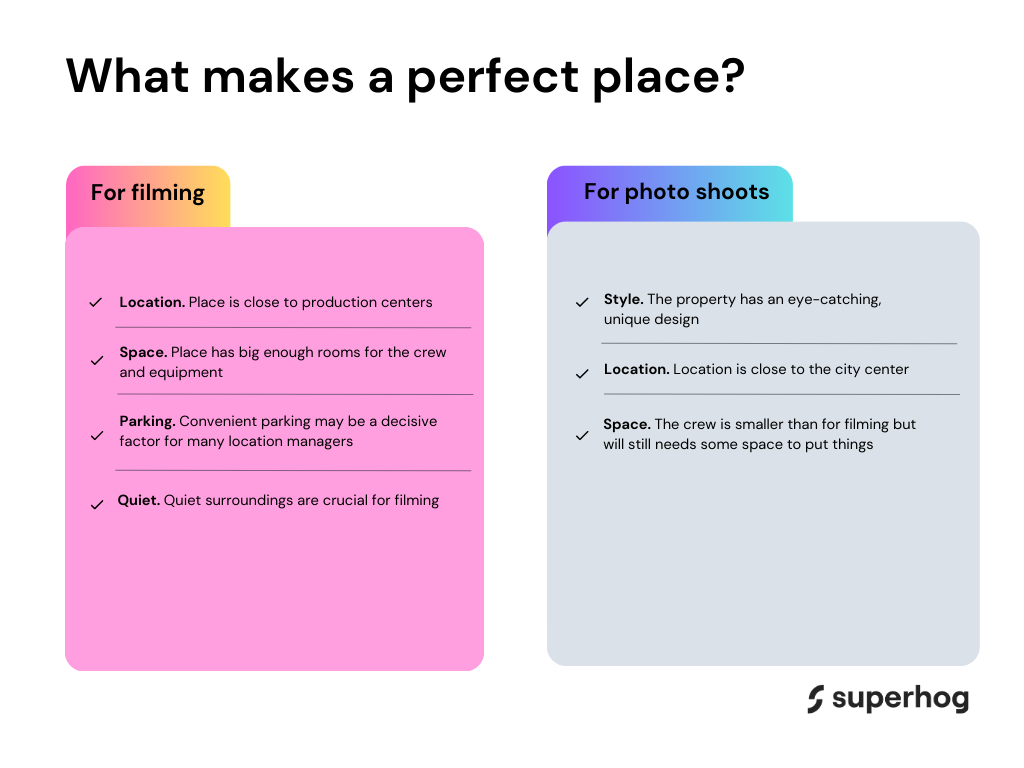
It isn’t a simple case of opening your doors and getting paid. If you are thinking of opening your doors to a filming crew, here’s what you should expect:
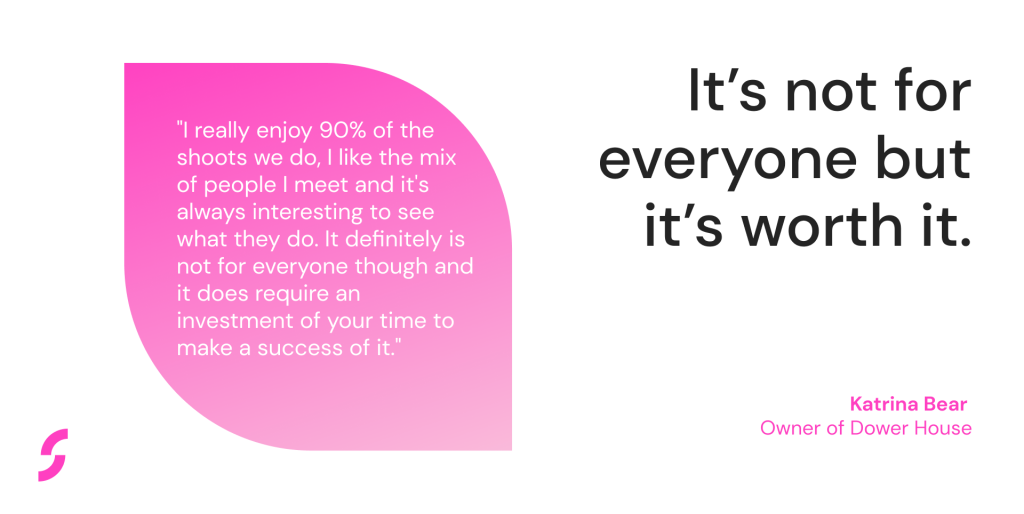
“I really enjoy 90% of the shoots we do, I like the mix of people I meet and it’s always interesting to see what they do. It definitely is not for everyone though and it does require an investment of your time to make a success of it.”
Katrina Bear
Owner of Dower House
It isn’t just about having the right house, it’s also about being the right person to rent my house for a movie set. You have to be a certain kind of person to allow a crew of strangers into the house and hand it over to them to do as they will.
Second, make sure it’s clean, tidy, and looks good in real life.
Adding some fresh flowers or foliage is a nice touch. Have a decorator who you can call on regularly – this is at your own cost but definitely to your benefit.
We know that the combination of the right homes and the right owners works. So if you have a fabulous house and want to do some work, sink your teeth into these top 10 tips from an owner of Dower House.

1. Present your house well and as it is seen on the location website
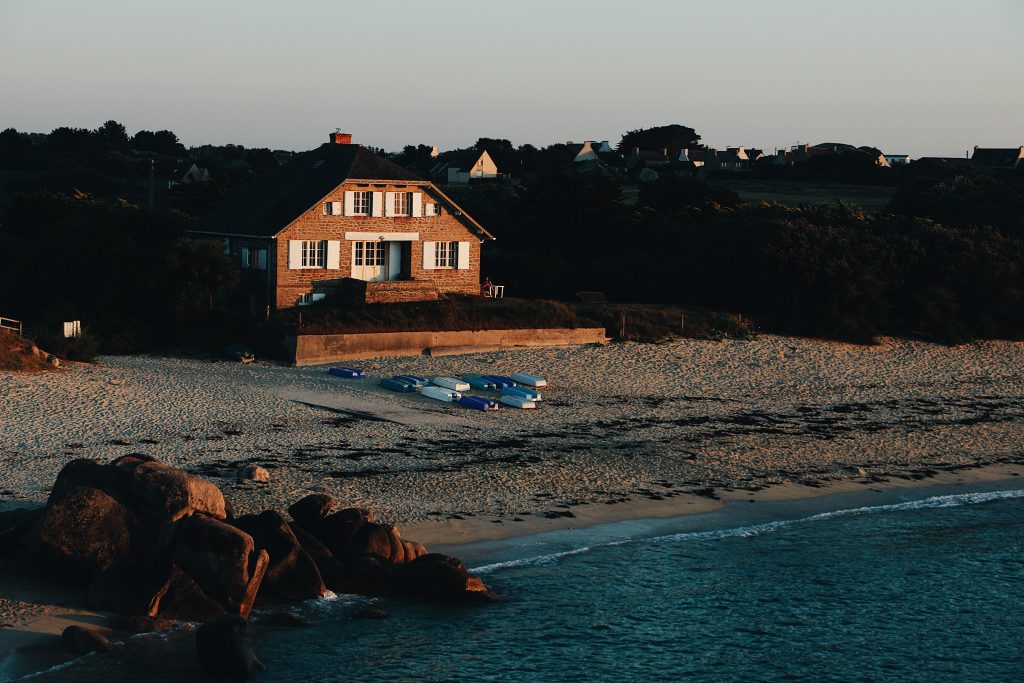
First, take realistic pictures of your place to avoid disappointing people who will rent your home for photo shoots.
2. Set the ground rules
Make sure you are clear with your agent on what your house rules are so the client knows what is acceptable and what is not, so this can be passed down to the crews.
For example, you may rent the house out for photo shoots only, set up the maximum size of the crew, or specify the minimum daily rate and rental hours.
3. Give the client a full walk around on the first day
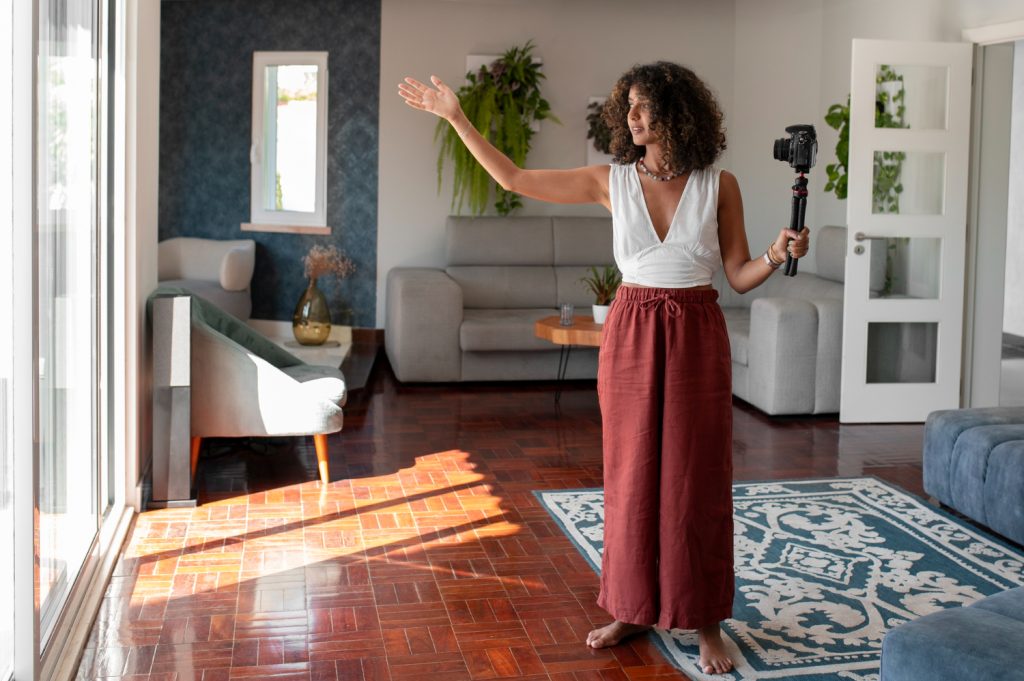
Point out any high-value items and move them yourself or under supervision on the day of the shoot. Show the client where your electric fuse board is, it’s unlikely to trip, but they should know how to access it.
4. Provide all information the crew might need for the day
Make sure the Light Locations folder is left out so they have everything they need to hand when you rent a house out for filming. WIFI code, local places to go for lunch, local flower shops, etc.
5. Protect your floors
It’s a good idea to protect the floors by the front door and hallway. This enables the crew to come straight in and start unpacking immediately.
Supply additional equipment for the crews. Let them use it to protect your floors.
Think about adding felt adhesive floor pads for furniture, tennis balls for tripods, and floor blankets. They are cheaper than fixing scratches on your floors.

6. Once the crew arrives, make them feel welcome and at home
Offer them a simple breakfast such as croissants. Make the crew tea and coffee in the morning and have something nice for them to eat when they have a break, such as biscuits or fruit.
Some owners make an area available for them to make their own coffee etc. Let the crew know where it is good to get lunch from locally. If the shoot is for multiple days and you have the space, it’s a good idea to allow the crew to keep things set up. It makes the shoot as easy for the team as possible and don’t worry, your house will be back to normal in no time.
7. Keep your property secure with damage protection
Whilst it helps to be someone who values and looks after their space, being too house proud can have its problems. Hiring out your home does come with the risk of potential damage, which is important to be aware of.
The place Emily1491 has been renting as a vacation property was often used for photo shoots without her notice, which caused considerable damage.
“It’s an awful lot of wear and tear-they tend to drag furniture across hardwood floors, move everything around. I also used to work as a photographer and know how much it costs to rent a space for photography. It’s a lot more than I charge for lodging.”
Emily
“The last guests I had this week were the worst. They caused a ton of (small and easily fixable, but annoying) damage, repeatedly either blocked me in or out of my driveway while moving their car around so it wouldn’t be visible in photos.”
To avoid similar issues or at least get your money back when they happen, you can use Know Your Guest by Superhog. This tool supports Guest Screening and ID verification to sift out unreliable guests, allows gathering Damage Deposits or Waivers to cover damages, and provides a Damage Protection Plan with up to $5,000,000 protection.
8. Be around during the shoot but not in their way
Guests renting your home for photo shoots or filming might need your help. Be nearby, but don’t interfere with the process. Working from home in a separate room is ideal, so if they have any questions, you are there.
9. Be around at the beginning and end of the shoot
Control the hours and ensure the house is returned in good condition. It also avoids potential problems after the shoot. If you break or damage something let the client and agent know immediately. Photograph the damage for your reference.
Read how to protect your property with a damage waiver.
10. Get your neighbors onboard
Having nice friendly neighbors can make or break a shoot. This is particularly important at the beginning and end of the day, when everything can become busy outside your property. It pays to let your neighbors know what is happening and when.
11. Keep your property fresh
If your location is very popular and is used frequently. It can be useful to make changes to your house every now and then such as maybe a new wall finish or paint color. Do let your agent know of any dramatic changes to the property that might require updating the photos.
Where to list your property for film location
When you are ready to invite your first guests, select several web platforms that will match you with location managers, crews, and photographers.
Try to promote your place through all-purpose property rental platforms like Booking or Airbnb or choose websites specializing in renting out property for filming and photo shoots.
Here are some options to list your properly:
How to get more bookings while renting your home for photo shoots and filming
Preparing your place for renting out is a huge step, but you must also make it visible to potential clients and ensure a steady flow of guests. Otherwise, your business will have low profitability and cause nothing but problems.
Read forums like Quora, where beginners ask professional photographers and directors what matters in a shooting location.
Tom Nelson shares his advice on some must-haves for a photo studio:
“You want to look at ceiling height and column spacing. Do you have enough space on the sides to set your lights without columns in the way? Ideally, the lights should be as far from the center of the background as the background is wide.
Are the electrical outlets in a convenient place, and do you have enough power?
Can you darken the shooting room when necessary? On the other hand, is there enough light to feel inviting and to provide ventilation? Does it provide north light? Will you need to paint the room(s)?
Does it have air conditioning if your summers are hot? If it has forced-air heating, will the heating vents blow your backgrounds down? Do you have a loading dock or ground-floor access?”
Besides refining your place, you should work on your property description across listing websites.
- Add professional photos of the location
- Include detailed descriptions of everything the property
- Indicate the style and special features like concrete walls, open kitchen, fireplace, etc.
- Mention some details that will be critical like a balcony with a view at historical building
Finally, encourage guests to share reviews about their positive experiences to make your listing look more trustworthy.
Superhog for safe short-term rentals
Letting unfamiliar people into your house can be challenging. They might not treat your house like their own. Spill coffee on the floor, break chairs, damage plants.
Use Know Your Guest by Superhog to avoid financial losses resulting from occasional or intentional property damage. This all-in-one platform helps manage guest-related risks through careful guest checks, damage deposits, and waivers. Book a demo now to learn how it works.

